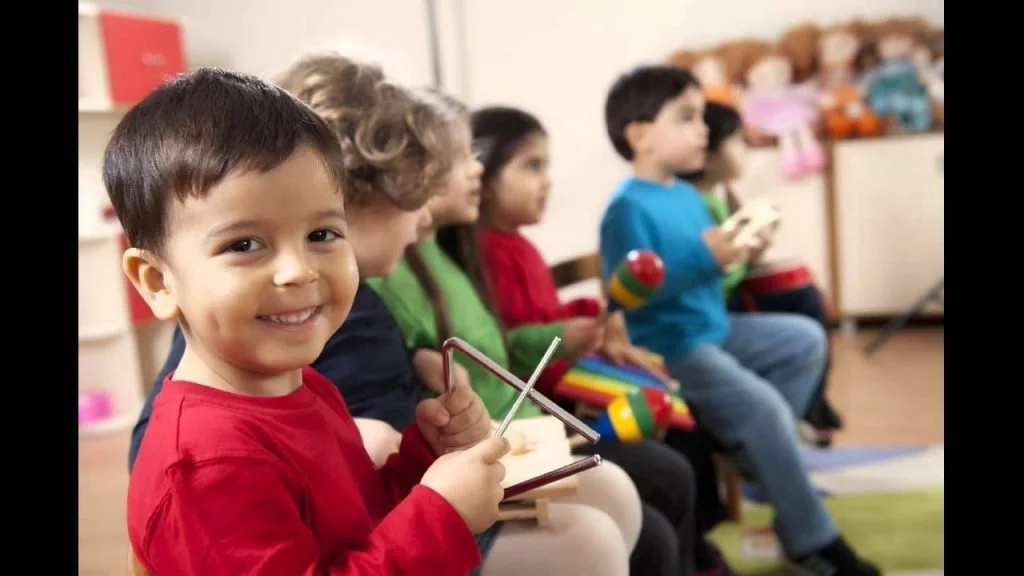Transformative power of music education for young children (part 2)
Reading time: 2 minutes
Here is a very interesting article on music from the website: “Parents”.
Introduction
“Music is a universal language that has the power to captivate and inspire people of all ages. When it comes to early education and development, music plays a vital role in nurturing young minds. In this article, we explore the myriad benefits of music education for young children, highlighting its impact on cognitive development, emotional and social well-being, physical skills, academic performance, cultural awareness, and more. Join us on this melodious journey as we delve into the remarkable advantages that music education brings to the lives of our youngest learners.
Emotional and social benefits of music
1-Fostering self-expression and creativity
Children are naturally expressive when exposed to musical instruments.
Music is an expressive art form that allows children to freely express their emotions and tap into their creativity. Through music education, children learn to identify and communicate their feelings, both through listening to music and creating their own melodies. This self-expression nurtures their emotional intelligence, fosters a sense of individuality, and encourages them to explore their unique creative abilities.
2-Promoting social skills and teamwork
Music promotes teamwork at an early age.
Music education provides valuable opportunities for children to collaborate, interact, and work together as a team. Whether participating in group performances, playing ensemble pieces, or engaging in musical games, children learn to listen, take turns, cooperate, and communicate effectively with others. These social interactions within a musical context cultivate important skills such as active listening, empathy, cooperation, and respect for others' contributions.
3-Building self-confidence and self-esteem
Self-esteem is built on happy experiences.
Engaging in music education empowers children and builds their self-confidence. As they learn to play an instrument, sing in front of an audience, or perform in a musical ensemble, children develop a sense of accomplishment and pride in their abilities. The positive reinforcement and encouragement received during music education programs contribute to a healthy self-esteem, helping children develop resilience and a positive self-image that extends beyond the realm of music.
More on this article on our next blog.





